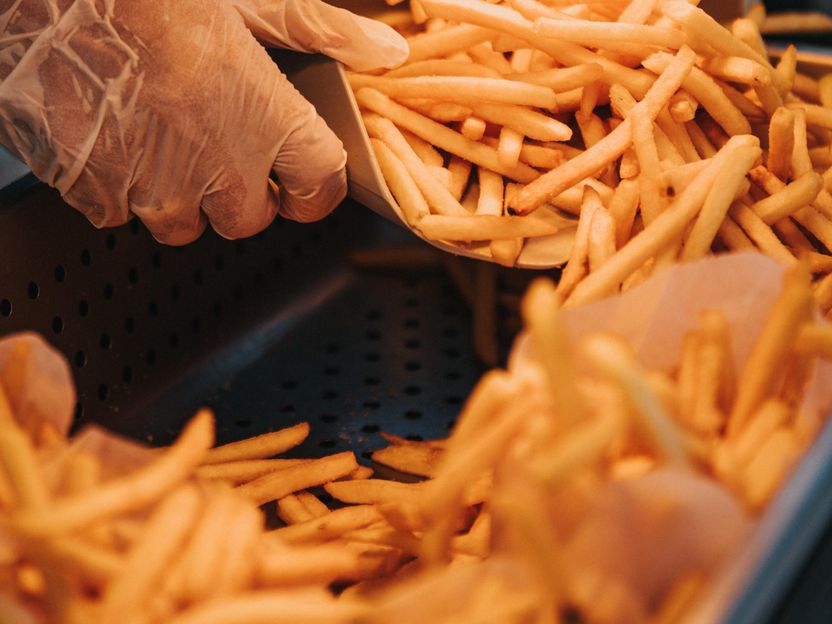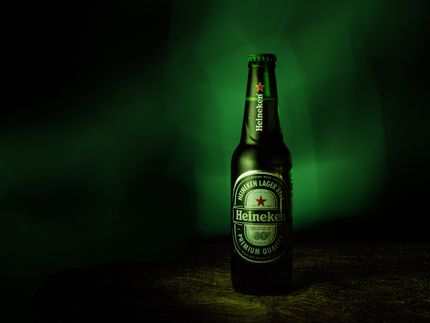Fritland Belgium: Potato industry in crisis
Advertisement
Frites are to Belgium what sauerkraut, bratwurst, currywurst and kebab are to Germany: a national dish that shapes identity. The frites stalls want to become a world heritage site, and no country exports more frozen potato products than Belgium. But even this industry was not spared the consequences of the Corona crisis. In the spring of last year, farmers were stuck with their potatoes and the freezers were full to the brim - which led a spokesman for the potato industry to make an unusual appeal in April 2020: eat more fries. A year later, he's convinced: the plea worked.

Photo by Nathan Dumlao on Unsplash
"I gave interviews 24 hours a day during those days," Romain Cools of the Association of the Potato Processing Industry (Belgapom) recalls of the time after his appeal. The situation had become increasingly dramatic for the industry: True, there were already contracts with buyers for part of the harvest. However, 30 to 40 percent was sold on the open market, Cools says. And here, at the beginning of the Corona pandemic in the spring of 2020, demand had fallen to almost zero. 750,000 tons of Belgian fry potatoes were lying around without buyers, and the cold stores were reaching their capacity limits.
"Eat frits twice a week instead of once a week" - with this plea to Belgians, Cools wanted to boost sales, especially of frozen potato products. The appeal had been a spontaneous response in an interview with a Belgian newspaper. When English-language media also reported, his appeal went viral. Today, Cools is certain: "The call and the media interest had a positive effect on sales."
At the very least, they may have prevented an even worse 2020: 15 percent less investment was made in the potato processing industry compared to 2019, Cools says. 16.5 percent fewer people were employed in the industry. Instead of the expected 5.6 million tonnes of potatoes, only 5.08 million tonnes were processed in 2020 (2019: 5.4 million). Exports from Belgian farms were down by around ten percent, Cools says. Potato farmers and suppliers have also suffered, he adds.
To make room in cold stores, as many potatoes as possible were distributed to food banks. Large quantities of the tuber also ended up as cattle feed or in biogas plants. Fortunately, two main buyers of Belgian potatoes - the Gulf States and Brazil - continued to import, says Cools. The fact that some Asian countries have managed to get to grips with the Corona crisis has also had a positive effect.
Frites are identity-building in Belgium. There is only some common pride in the country with its different regions and languages, as Romain Cools explains. The national soccer team, for example, or beer, chocolate - or even frites. The greasy sticks are eaten at the famous frites stands. Chancellor Angela Merkel stopped at one of them a few years ago during a seemingly endless EU summit. Now the chip stands even want to become a Unesco World Heritage Site, and an application to that effect is on its way.
The chip shops were not as badly hit by the Corona crisis as the processing industry and exporters. He finds it difficult to describe them as victims, says Bernard Lefèvre, chairman of Navefri, the national umbrella organisation for chip shop operators. That's because, in the "big family" of the restaurant industry, the takeaways have at least had the opportunity to sell something throughout, he says. Unlike restaurants, which have been closed for nine of the past 12 months, the stalls would not have had to close for a single day. "Without meaning to, we're right on trend," Lefèvre says.
Street food? Food on the go? The chip shops have been doing that for a long time.
Still, there have been sales losses of between 20 and 80 percent, Lefèvre says. Operators in the big cities who depend on tourists have been hit worse than chip shops in the countryside.
What would have helped, however, was "pretty good" and rapid government support. Among other measures, there were compensation payments for stalls that could prove sales had fallen by at least 40 per cent. Lefèvre says he has not heard that any of the 4,600 or so chip shops in Belgium have had to close down. On the contrary, he expects that more and more people will come up with the idea of opening new shops. Many people still think that the shops that remained open during the Corona crisis are gold mines.
So, a year after "eat more fries," do we need another call? Prices are low this season, too, Cools says. But what could prove helpful is that there was a below-average potato harvest in 2020 because of the hot, dry summer. That could help rebalance the market, he says. A new campaign is not needed, Cools says. "Let's hope this stays a page in the 2020 history book and never comes back."/gba/DP/zb
Note: This article has been translated using a computer system without human intervention. LUMITOS offers these automatic translations to present a wider range of current news. Since this article has been translated with automatic translation, it is possible that it contains errors in vocabulary, syntax or grammar. The original article in German can be found here.































































